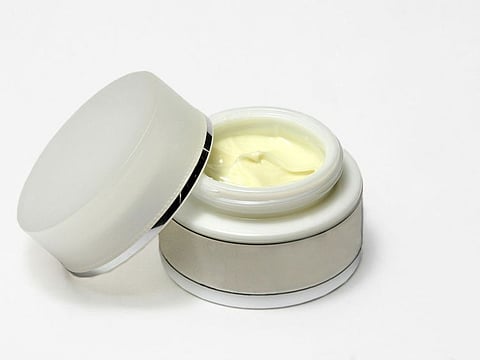Skin-bleaching creams prompt health warning in Philippines
Officials urged to act on products smuggled from China, Indonesia, Malaysia, Pakistan

Manila: Skin-whitening products containing toxic chemicals not only place the lives of users at risk, but damage the environment as well, a Philippine non-governmental organisation has warned.
According to the non-profit, EcoWaste Coalition, traders in certain cities in Southern Philippines’ Mindanao continue to sell certain skin-lightening brands containing harmful amounts of mercury despite a government ban on such products due to its risks on public health.
Because of this, said Thony Dizon, EcoWaste Coalition Chemical Safety Campaigner, it may be necessary for local government authorities in Cagayan de Oro, Oroquieta, Ozamiz, Iligan, Dipolog, Pagadian, and Zamboanga cities, to act fast to stop the sale of toxic skin whiteners used mostly by women and girls, at risk of mercury poisoning.
According to the World Health Organisation (WHO), mercury contained in skin lightening soaps and creams can cause kidney damage and “may also cause skin rashes, skin discolouration and scarring, as well as a reduction in the skin’s resistance to bacterial and fungal infections” in addition to anxiety and depression.
“To uphold the general welfare as stipulated under the Local Government Code, we appeal to concerned city officials, especially to newly-elected or re-elected mayors, to act with urgency to break the criminal sale of mercury-laced skin whitening products,” Dizon said.
The Philippines had banned skin lightening products with mercury levels exceeding the national regulatory limit of 1 mg/kg in 2011 based on recommendations of the WHO.
However, it is apparent that sales for these harmful products continue.
According to EcoWaste, they had sampled 93 skin lightening creams from beauty and herbal product retailers mostly operating in public markets and shopping malls.
“The products, smuggled from China, Indonesia, Malaysia and Pakistan, have not undergone the required quality and safety assessment by the Food and Drug Administration (FDA) and are therefore illegal to sell and unsafe to use,” Dizon said.
“Out of 93 samples, 75 items were found to be contaminated with mercury in the scale of 15 to 23,000 parts per million (ppm), way above the 1 ppm limit under the ASEAN Cosmetic Directive as well as the Minamata Convention on Mercury,” he said.
WHO said aside from harming the individual using such products, mercury in soaps, creams and other cosmetics are eventually discharged into wastewater.
“The mercury then enters the environment, where it becomes methylated and enters the food-chain as the highly toxic methylmercury in fish. Pregnant women who consume fish containing methylmercury transfer the mercury to their foetuses, which can later result in neurodevelopmental deficits in the children,” the UN-attached agency said.
Sign up for the Daily Briefing
Get the latest news and updates straight to your inbox



